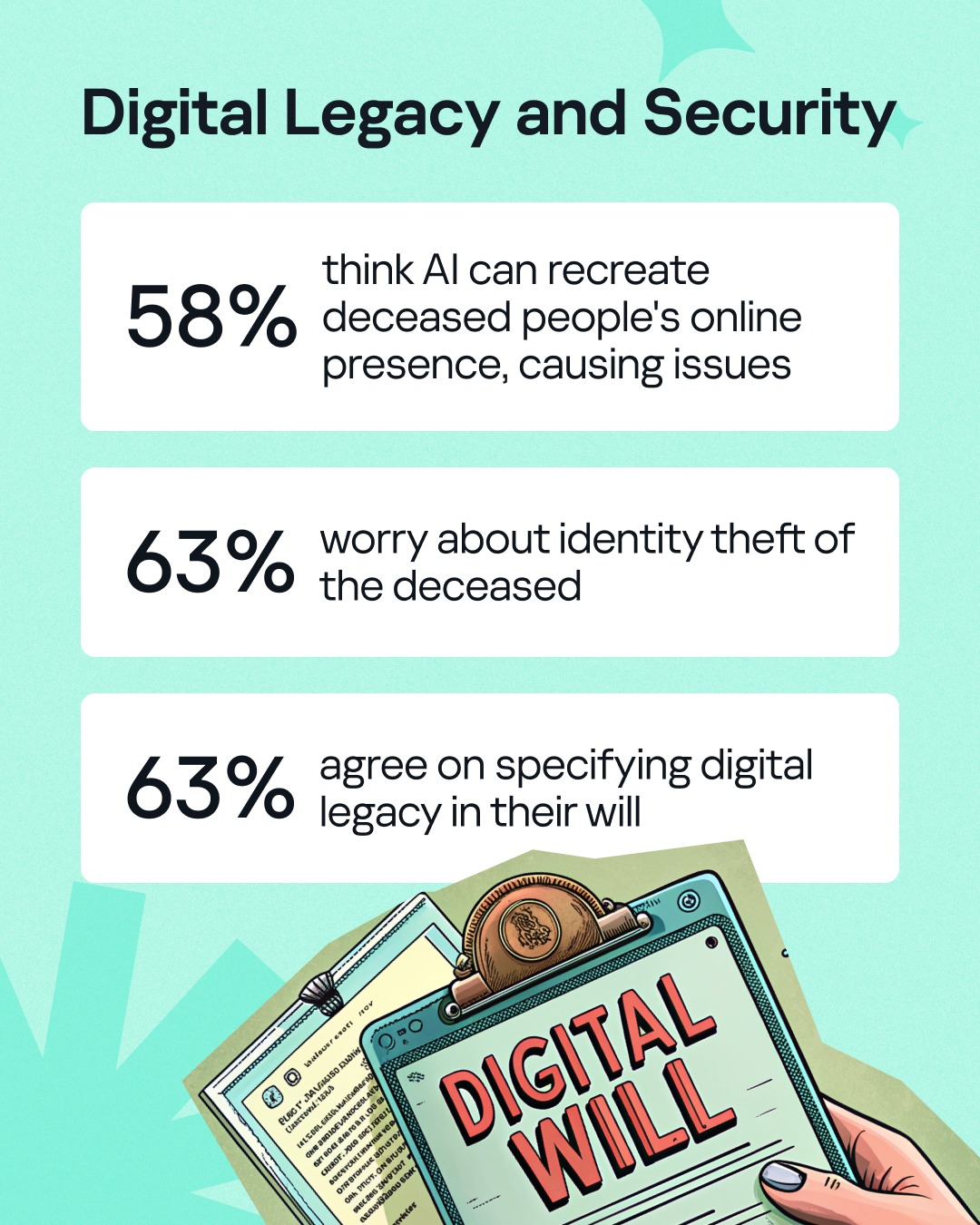Islamabad : The recent study titled “Excitement, Superstition, and Great Insecurity – How Global Consumers Engage with the Digital World” reveals (61%) consumers believe the identities of the deceased are particularly vulnerable to identity theft as there is often no one left to monitor what happens to the information posted online.. As for the recreation of ones’ online presence using artificial intelligence (AI), 35% of respondents find it acceptable, while a larger portion (38%) actively disagrees, highlighting the unresolved issues of privacy and respect in the digital realm.
According to the “Digital 2024 Global Overview Report” conducted by Kepios, 95% of the internet users now use social media every month, with 282 million new identities joining between July 2023 and July 2024. As more people interact online and their digital footprints expand, the concerns over privacy, legacy, and the ethical use of digital identities become increasingly relevant.
More than half of the respondents (58%) agree that the online presence of people who have passed away could be recreated using AI.
Interestingly, most people (67%) are sure seeing images, or stories, about people who have passed away can be upsetting to those who were close to them. However, 43% of consumers are confident there is no time limit to find every image, video, or voice recording ever published online relating to a specific person.
As probably the only measure consumers can take to control their digital footprint after death is to include instructions in their testament, 63% agree anyone with an online presence should specify in their will what is to be done with their data and social accounts.
“The issue of managing one’s digital footprint is often overlooked in daily online activities. However, the survey results underscore a critical point: a significant number of respondents are aware of the potential for stolen identities to cause immense personal trouble for users, or their loved ones. Given these risks, it is prudent to adopt proactive measures that enhance privacy and safeguard digital identities,” comments Anna Larkina, web content analysis expert at Kaspersky.
In order to strengthen users’ privacy, Kaspersky suggests employing a modern security solution makes it easy to monitor what personal data apps are processing and also limit data collection when necessary. As not all online services make it clear what data they collect and how they use it, following the instructions of online Privacy checker will help to limit the amount of information shared online.
The full Kaspersky report “Excitement, Superstition and great Insecurity – How Global Consumers Engage with the Digital World” is available via this link.







